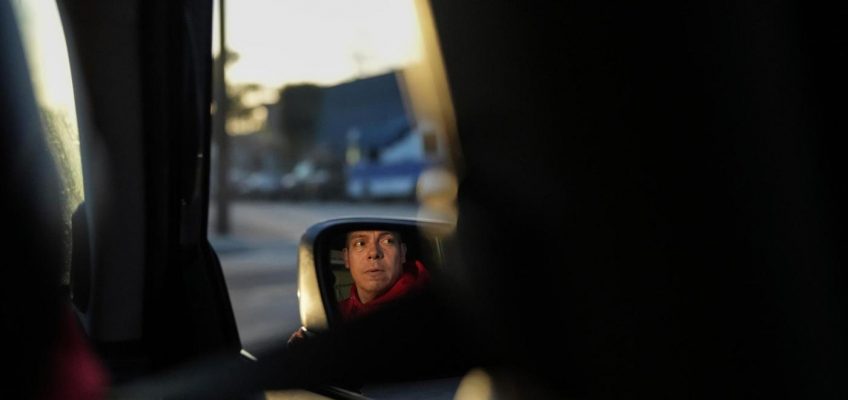LOS ANGELES — The 2025 awards season is (finally) approaching its end.
The 97th Academy Awards will be held Sunday at the Dolby Theatre, where Hollywood’s biggest stars will assemble to celebrate this awards cycle’s best films and performances one last time.
Related Articles
Everything to know about the 2025 Oscars on Sunday
Oscar-winner Gene Hackman and wife Betsy Arakawa may have been dead for days or weeks, sheriff says
Movie review: ‘The Accidental Getaway Driver’ a meditative take on kidnapping saga
‘The White Lotus’ review: Three seasons in, there’s little beneath the gleaming surface
‘Running Point’ review: A lot like ‘Entourage,’ minus the bro-y energy
Is Sean Baker’s “Anora” a shoo-in for the evening’s top prize, as many awards prognosticators believe? Or will “Conclave” pull off a surprise following its SAG Awards win? And just how much of the “Wicked” soundtrack will Cynthia Erivo and Ariana Grande perform? You’ll have to tune in to the 2025 Oscars to find out.
When is the show?
The 97th Academy Awards will be held on March 2 at the Dolby Theatre at Ovation Hollywood. The show will kick off at 4 p.m. PT.
How can I watch?
The 2025 Oscars telecast will air live on ABC and stream live on Hulu. Those with cable subscriptions also can use their credentials to access the livestream on abc.com and the ABC app.
This is the first year that the Oscars will stream live on Hulu. In prior years, cord-cutters needed subscriptions to platforms with live TV tiers such as Hulu + Live TV, YouTube TV or FuboTV to catch the show.
What about the red carpet shows?
The official live preshow, “The Oscars Red Carpet Show” — hosted by Julianne Hough and Jesse Palmer — will kick off at 3:30 p.m. on ABC and Hulu.
Those interested in tuning into the festivities even earlier can choose from preshow offerings that include “E! Countdown to the Red Carpet” (E!, 11 a.m.), “On the Red Carpet at the Oscars” (ABC, 12:30 p.m.) and “E! Live From the Red Carpet” (E!, 1 p.m.). All times Pacific.
Who is hosting?
Comedian and TV host Conan O’Brien will host the 2025 Oscars. This marks the first time O’Brien is hosting the Academy Awards. He hosted the Emmys in 2002 and 2006.
Conan O’Brien, left, host of Sunday’s 97th Academy Awards, salutes photographers before helping to roll out the red carpet at the Dolby Theatre on Wednesday, Feb. 26, 2025, in Los Angeles. (AP Photo/Chris Pizzello)
O’Brien reportedly has been in touch with past Oscars hosts, including Billy Crystal and Jimmy Kimmel, as he prepares for the show.
“There’s no such thing as getting to a point professionally where there are no nerves if you’re working in comedy,” he told People. “I am very aware that it’s an iconic show and can be tricky. … I like to meet a challenge.”
What is nominated?
“Emilia Pérez” — which has been mired in controversy over the course of its awards run — leads the field with 13 nominations, followed by “The Brutalist” and “Wicked” with 10 nods each. All three films are up for the top prize of the night.
This combination of images shows promotional art for ten films nominated for the Oscar for best picture, top row from left, “Anora,” “The Brutalist,” “A Complete Unknown,” “Conclave,” and “Dune: Part Two,” bottom row from left, “Emilia Perez,” “I’m Still Here,” “The Nickel Boys,” “The Substance,” and “Wicked.” (Neon/A24/Searchlight Pictures/Focus Features/Warner Bros. Pictures/Netflix/Sony Pictures Classics/Amazon-MGM/Mubi/Universal Pictures via AP)
The best picture contenders are:
“Anora”
“The Brutalist”
“A Complete Unknown”
“Conclave”
“Dune: Part Two”
“Emilia Pérez”
“I’m Still Here”
“Nickel Boys”
“The Substance”
“Wicked”
Check out the complete list of nominees here.
Who is performing?
Breaking from tradition, this year’s Oscars telecast will not feature live performances of all of the original song nominees.
This image released by Universal Pictures shows Cynthia Erivo, left, and Ariana Grande in a scene from the film “Wicked.” (Universal Pictures via AP)
Instead, “Wicked” duo Erivo and Grande, Lisa of the K-pop group Blackpink (and “The White Lotus“), Doja Cat, Queen Latifah and Raye have been tapped to perform. While specific details have not been revealed, according to the Academy of Motion Picture Arts and Sciences, the performances will celebrate “the filmmaking community and some of its legends.”
The Los Angeles Master Chorale also is set to make a special appearance.
Who is presenting?
Last year’s acting winners Emma Stone (“Poor Things”), Da’Vine Joy Randolph (“The Holdovers”) and “Oppenheimer” stars Cillian Murphy and Robert Downey Jr. will be among those presenting at the 97th Academy Awards.
Other presenters include Halle Berry, Penélope Cruz, Elle Fanning, Whoopi Goldberg, Scarlett Johansson, John Lithgow, Amy Poehler, June Squibb, Bowen Yang, Joe Alwyn, Sterling K. Brown, Willem Dafoe, Ana de Armas, Lily-Rose Depp, Selena Gomez, Goldie Hawn, Connie Nielsen, Ben Stiller and Oprah Winfrey.
Emma Stone arrives at the 82nd Golden Globes on Sunday, Jan. 5, 2025, at the Beverly Hilton in Beverly Hills, Calif. (Photo by Jordan Strauss/Invision/AP)
(“Parks & Recreation”) will serve as the announcer for this year’s show.
©2025 Los Angeles Times. Visit latimes.com. Distributed by Tribune Content Agency, LLC.




